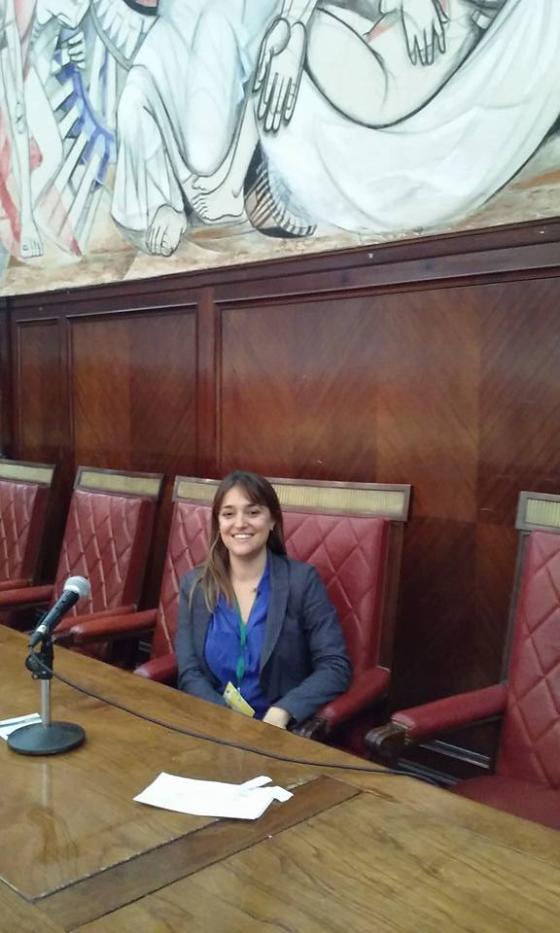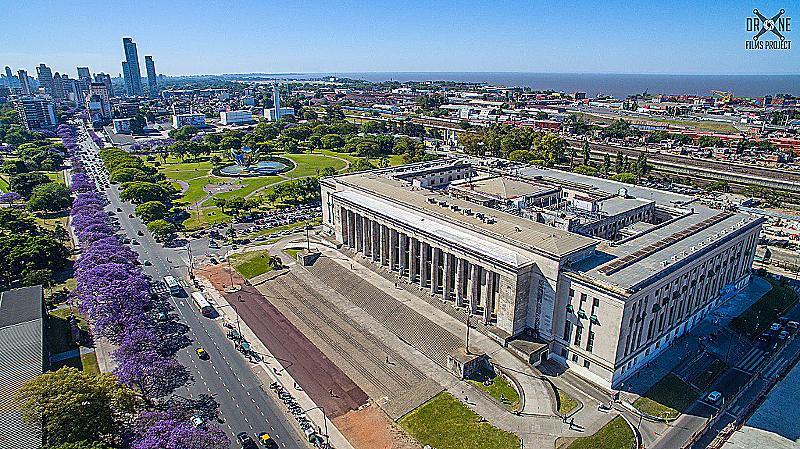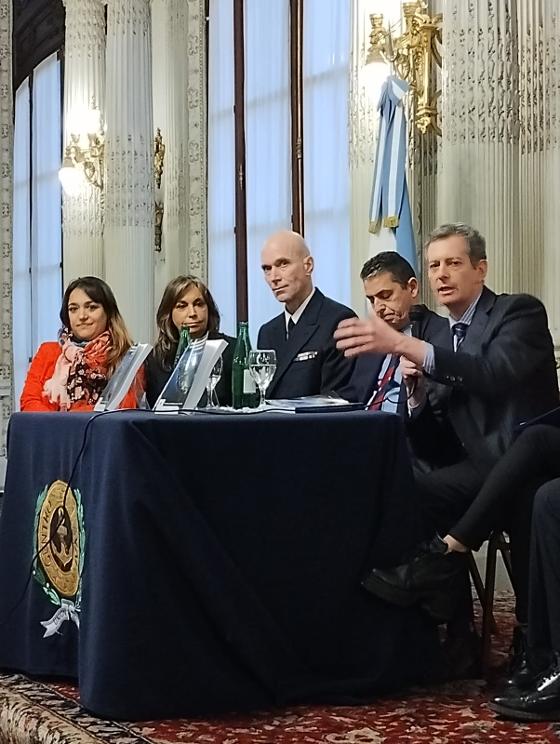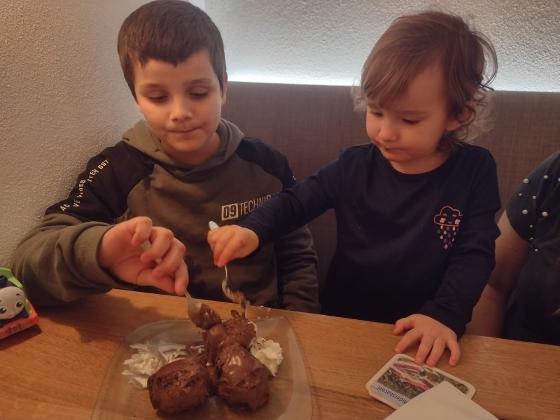ECO_CARE meets Violeta Radovich
By Violeta Radovich
Pdf: here
This month we meet Violeta Radovich, a professor and legal researcher from Argentine, with impressive expertise in environmental law, the law of the sea, and maritime law. Violeta’s work has been crossing the ECO_CARE path in different ways:
- 1) through common research collaboration in Bayreuth, Germany, working with Eva Lohse’s research team on indigenous and local communities participation in environmental matters (here), and,
- 2) recently, she submitted an MSCA project application through the excellent Arctic MSCA-PF Program, coordinated by Theresa Mikalsen and Kata Bohus.

Ph.: Violeta Radovich
Research
- Can you briefly tell us about your research passions?
My research passions are environmental conservation in general, and marine environmental conservation in particular.
- What areas, topics, and issues in your domain of expertise need to be explored in the years to come?
The high seas and the Area, the ocean areas beyond national jurisdiction, cover more than 50 percent of our planet Earth. I believe that their conservation and sustainable regulation have to be explored in the coming years. Indigenous communities have a lot to teach us about conservation, and I think that interdisciplinary scientific research is necessary as well. The moon has been more studied than the ocean (that’s why we need to catch up with it!)
- What is your experience with project applications? Can you tell us something about the complexity of an academic career to combine research, project applications, and educational duties?
It is complex, and I imagine that even more complex where I live, in Latin America, where scientific research receives less funding than in Europe. It requires a lot of effort and time- managing organization, but it brings a lot of satisfaction in the end. In fact, investing time and energy in project applications creates long-term benefits to research innovation and education, as well.
Teamwork
- Can you tell us something about your teamwork experience?
It is not easy managing teamwork in Argentina, for instance, in the Environmental Law Chair where I used to teach at UBA (Universidad de Buenos Aires), I was the only professor devoted full-time to research. The other professors did not make a living by researching or teaching, in fact, they work as professors at UBA without receiving payment. I feel blessed because I am devoted 100 percent to research, funded by CONICET( Argentine Council of Scientific and Technical Research).
In 2019, after obtaining my Ph.D. in 2018, I was appointed as a research professor by UNDEF (Universidad Nacional de la Defensa). Since then, I have enjoyed the opportunity to work on ocean conservation interdisciplinarily and lead projects. At UNDEF I am currently leading the research project "Strategic and legal marine environmental regulation of exploration and exploitation of hydrocarbons, marine genetic resources and generation of renewable energy in the Argentine Sea”.

Ph.: A wonderful view of the University of Buenos Aires, Argentina (UBA), surrounded by the jacaranda trees
- What do you enjoy about working in a team?
I enjoy listening to opinions from all the members of the team. I enjoy joining forces and that we all work for the same objective.
- According to you, what makes a team successful?
A successful team is one where everybody is heard.

Ph.: Violeta and her interdisciplinary team presenting the book on Marine Protected Areas in Antarctica, at UNDEF, Buenos Aires, Argentina
Diversity and equity
- Describe a time when you found it difficult to work with someone from a different background
I enjoy working with people from different backgrounds, I have never any had difficulties. Due to personal experiences, I believe that differences enrich us.
- Can you think of an example of a situation where you had to take into account the sensitivities of different parties?
I always take into account the sensitivities of different parties, and this is even more important when you are first meeting a person. We are all fighting struggles, kindness is so necessary. I do not believe in prejudices, I feel that most of the time when people meet me they are guided by prejudices, I try to eliminate these prejudices. Most of the time, prejudices are wrong. And if they are right, I always think that there is a reason why the person in question has an attitude I may consider wrong. I think this may be based on her o his personal story, it is a defense mechanism.
- How has your education and work experience prepared you for working in a diverse environment?
My personal experience has prepared me for working in a diverse environment. My brother went to special schools, I have always believed he is the most intelligent and kind person in the world. He is my greatest teacher, he has taught me everything. I have always looked at the world through his eyes. I always say that if I have any virtue is because of him. I believe I am a humble person, all thanks to him. I do not believe in hierarchies, I will never make difference between how I treat a queen, a president, or a cleaning employee, for instance. My parents have also educated me in this sense.
- Can you think of an instance when you have demonstrated leadership or commitment to diversity and equity in your work (research or teamwork)
I am a very sensitive and intuitive person, I believe I demonstrate leadership by showing I am a simple person. I believe in simplicity. I can detect when people don’t know me and think that because of my work, I would be a pedant person. By being natural I eliminate this prejudice towards me.
Career and family life
- Can you please tell us about your experience in balancing career and family life?
This balance is not easy, it is necessary to put limits and to set priorities.
- Have you experienced any situation where the competitive academic reality (with high pressure to publish, secure funding, and earn permanent positions) came in conflict with your family life?
Not, luckily, I was able to prevent this from happening. My family is my priority, without any doubt.

Ph.: Violeta's children enjoying profiteroles
***
This post may be cited as: Violeta Radovich, ECO_CARE meets Violeta Radovich (September 13, 2022), online: here